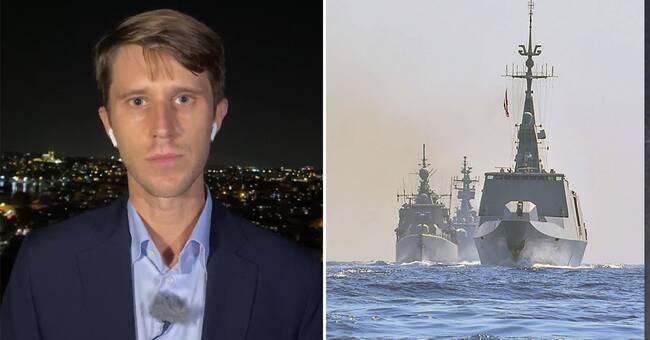The conflict over who has the right to the sea area around the Greek island of Kastellorizo, located just two kilometers off the south coast of Turkey, has actually been going on for decades.
But after both Israel and Cyprus made large natural gas deposits in the eastern Mediterranean, the tense situation between the countries has escalated.
Large assets in the pot
Turkey has started looking for natural gas in an area that has traditionally belonged to Greece, which has led to both countries increasing their military presence in the area.
- There are large natural gas resources in the pot and that would mean a lot to Turkey, which is completely dependent on importing all energy at present, says Tomas Thoren in Aktuellt.
Despite the fact that the EU, which is on Greece's side in terms of demarcation, has threatened sanctions, Turkish President Erdogan has continued to assert rights to the maritime area.
And in the national media, the mood is whipped up, says Thomas Thoren.
- It's almost as if the commentators want to see a war.
All proposals from Greece are perceived as provocations, he says.
Willing to negotiate
At the same time, Germany has taken on the role of mediator.
Among other things, it defends the refugee agreement with Turkey, which has led to the EU receiving fewer migrants in recent years.
- The door to dialogue is not completely closed.
As recently as today, it has been said that they are prepared to sit down at the negotiating table, but the positions are very far apart.
How big is the risk of a war?
- It is a very serious situation and a small mistake could have major consequences, but the stable tip is still that it will not end in a real war, says Tomas Thoren.

